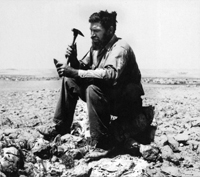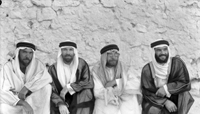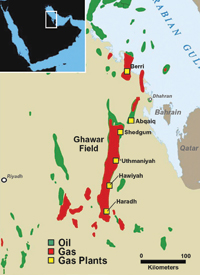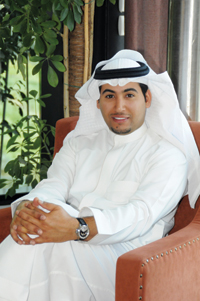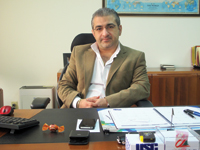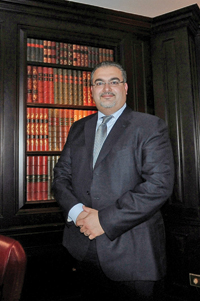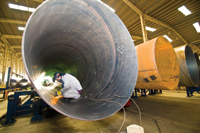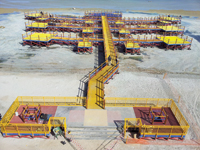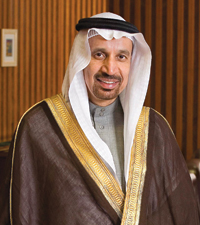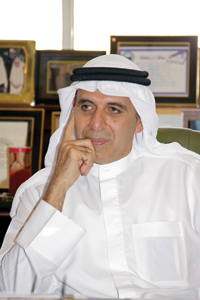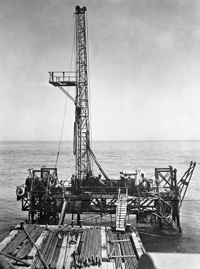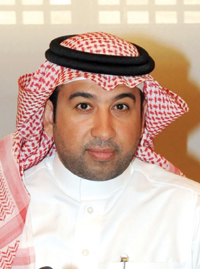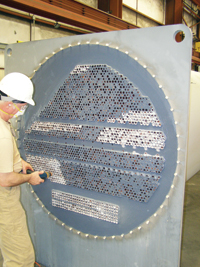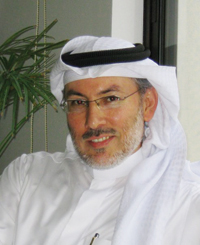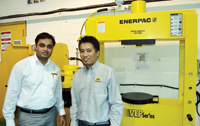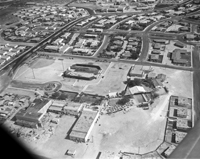
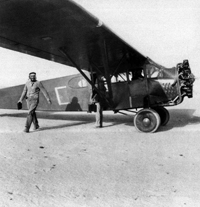 Steineke ... stealing everybody’s heart
Steineke ... stealing everybody’s heart
EVERYBODY worked their hearts out for him,” said Tom Barger, the miner-turned-geologist who became Aramco’s chairman. “He discovered more oil than anyone else in the industry,” wrote colleague Phil McConnell. “He left the most beautiful touches in the heart,” said ‘Abd Al’Aziz Shalfan, the Najdi youth who became Aramco’s oldest employee.
The man they were describing, of course, is the legendary Max Steineke, the beloved and highly respected chief geologist who unravelled the geological secrets of Saudi Arabia – and seems to have won the hearts and minds of everyone he met in doing so, writes William Tracy in Saudi Aramco World.
Steineke, clearly, was an unusual man. “Burly, big-jawed, hearty, enthusiastic, profane, indefatigable, careless of irrelevant detail and implacable in tracking down a line of inquiry, he made men like him, and won their confidence,” as author Wallace Stegner summed him up.
Steineke was a bit late in getting to Arabia; he didn’t arrive until the 1934-35 field season was well under way. But he came with the right credentials for Al Hasa: a degree from Stanford, 13 years as a Socal geologist, experience in areas such as Alaska, Colombia, and New Zealand, a taste for the outdoors and an unlimited capacity for work.
“Max,” Barger recalls, “had great curiosity, great imagination. And he had no stumbling blocks. He would take his brainchildren and strangle them, throw them away, if some evidence was adduced that wasn’t explainable by his hypothesis. He felt that defending a hypothesis was a waste of time – that you looked at the evidence and made the best guesses you could at what it meant and how the phenomena you were observing came about. Then, if new facts came to light that made this hypothesis worthless, you threw it away. One time Max was with some VIP’s looking over big maps and he was explaining what had been done the previous year and said: ‘Down here is an anticlinal structure.’ One of them said, ‘I thought you said, Max, that this was a synclinal area.’ ‘Oh yes,’ he said, ‘we did, we did, but we know a lot more about it now. Now as I was saying, this is an anticlinal area down here...’
“He always talked to every young geologist that came in. This is a ploy used by some managers to make people feel at home, like part of the team. But Max talked to them because he thought he might learn something he didn’t know! Incredible!
“He couldn’t stand lack of curiosity. The only guy I know he fired was the chief of a party of geologists. Max went out to visit their camp – he always came out to see you on the job periodically – and as they left the camp and were driving along.
“One of the problems in field work is to keep your equipment running; the longer you kept it running, the longer you could work and the more you could get done. But if a guy wasn’t mechanically inclined and had to holler for help more than another, Max didn’t hold that against him, because, after all, he had been hired because he was a geologist and not because he was a mechanic. In recognition of what one writer called “his uncanny faculty for reconnaissance... .” Steineke was awarded a medal by the American Association of Petroleum Geologists in 1951 a year before he died. And in Dhahran his name is preserved at Steineke Hall, Aramco’s guest house.







































































